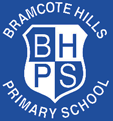The BHPS History Curriculum
Intent:
At BHPS we provide children with a challenging and engaging history curriculum that inspires a curiosity and fascination. We want them to have a coherent knowledge and understanding of Britain’s past and that of the wider world. Through studying a variety of historical periods and concepts, they should develop a chronological narrative, from the earliest times to the present day. They should appreciate how people’s lives have shaped the nation and how Britain has influenced and been influenced by the wider world. They are increasingly able to explain the nature of ancient civilisations, the expansion and dissolution of empires; characteristic features of past non-European societies and achievements and follies of mankind.
We aim to build on key historical knowledge, understanding and skills. As we draw our pupils from a wide catchment, with many children having English as an additional language, we start with ensuring pupils have a strong understanding of historical language.
Implementation:
We begin with a child-centred approach to history by exploring changes within their own lives and within living memory. They explore events that are significant locally and nationally and the lives of significant individuals who have contributed to national and international achievements. As pupils progress, they are introduced to more abstract terms such as ‘empire’, ‘civilisation’ ‘parliament’ and ‘peasantry’. As they move through the key stages, they continue to explore concepts such as continuity and change, cause and consequence, similarity, difference and significance, and use these to analyse trends and frame historically-valid questions. Even from a very early age, children are exposed to methods of historical enquiry and how evidence is used to make historical claims.
We motivate and enthuse pupils by creating deep links with other curriculum areas including English, maths, science, geography, art and SMSC. Wherever possible, we use first-hand experiences and fieldwork to deepen their understanding of history. We aim to provide some off-site experiences with a specific historical focus so that children can strengthen their understanding through first-hand experiences. We use a range of historical sources of evidence and utilise artefacts, drama, role-play, visiting experts and the latest technology to bring the subject to life. This ensures that their curiosity and fascination are maintained and that history is delivered in an exciting and engaging way. Many of our children and people from the wider community have strong historical links and a vast historical knowledge, so we make use of these experts to engage and motivate pupils further.
Our history curriculum is designed to allow children time to think, discuss, practise, explore and embed. This allows time for teaching, practice and repetition – both in a year group and across both key stages. Curriculum coverage is mapped out carefully from EYFS to Year 6 which allows some key concepts to be developed at a deeper level of learning, understanding and mastery. Fundamental knowledge and skills are covered at key points throughout the primary phase and repeated to allow pupils to build on what has been taught before. Where year groups are covering an area in more depth, this will be highlighted in green on the Curriculum Depth Map below. Lessons will be planned and a knowledge organiser provided for pupils, which outlines the area to be taught, where the new knowledge and skills fit in with their prior learning, any sticky knowledge they need to understand and key vocabulary they need to learn.
Impact:
Impact is evidenced through:
- Pupils understanding and ability to clarify for others what history is and the importance and value of studying the subject.
- Developing historical skills
- Retaining key knowledge
- Demonstrating that they know more all the time
- Low-stakes tests/quizzes
- Pupils will be able to express their knowledge and understanding
- Pupil’s use of key vocabulary
- The use and outcomes of the varied activities
